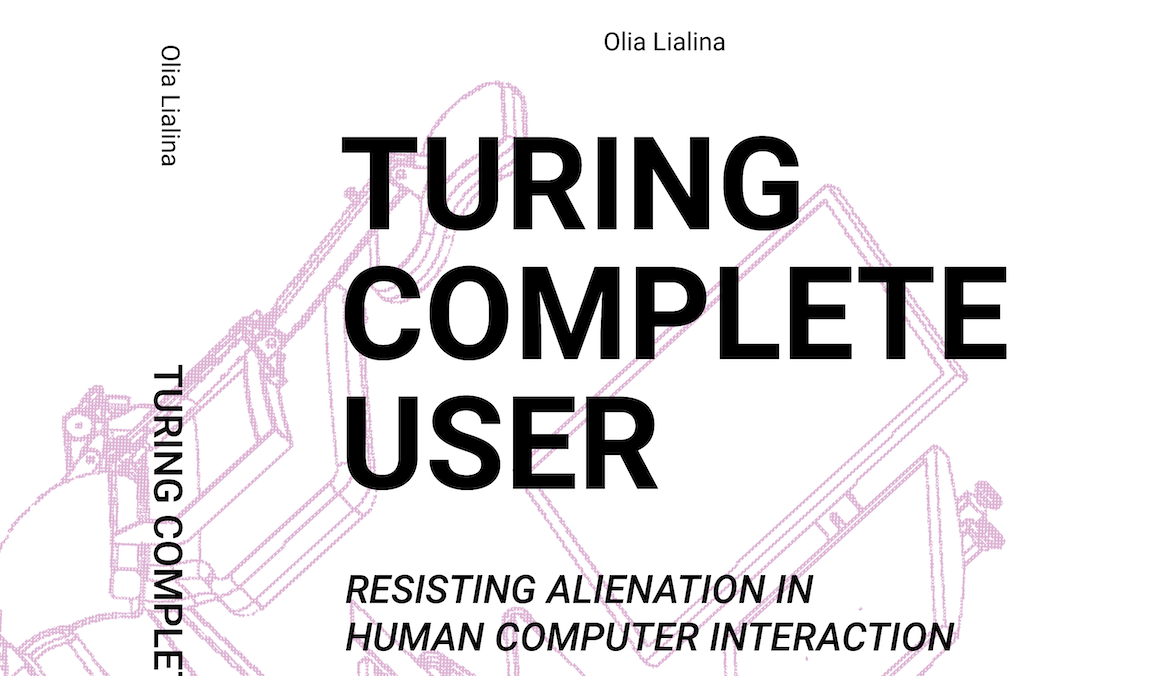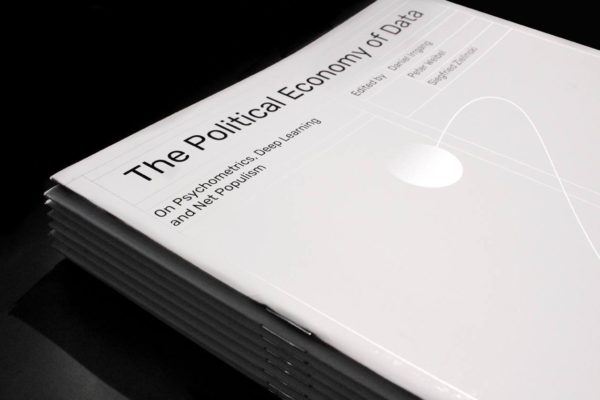The first volume of our Interface Critique book series is now available, as open access electronic version and via print on demand:
Olia Lialina, “Turing Complete User – Resisting Alienation in Human Computer Interaction”
From the blurb:
Around 2010, the field of human-computer interaction and the IT industry at large started to invest in reforming their terminology: banning some words and reversing the meanings of others to camouflage the widening gap between users and developers, to smooth the transition from personal computers to “dumb terminals”, from servers to “buckets”, from double-clicking to saying “OK, Google”.
Computer users also learnt to talk, loud and clear, to be understood by Siri, Alexa, Google Glass, HoloLens, and other products that perform both listening and answering. Maybe it is exactly this amalgamation of input and output into a “conversation” that defines the past decade, and it will be the core of HCI research in the years to come. Who is scripting the conversations with these invisible ears and mouths? How can users control their lines?
When hardware and software dissolve into anthropomorphic forms and formless “experiences”, words stop being mere names and metaphors. They do not only appeal to the imagination and give shape to invisible products. Words themselves become interfaces – and every change in vocabulary matters.
Olia Lialina was born 1971 in Moscow, graduated Moscow State University in 1993 as a journalist. She is a net artist, animated GIF model, and a pioneer of net.art; co-founder of the GeoCities Research Institute and keeper of the One Terabyte of Kilobyte Age Archive. Lialina writes on digital folklore, vernacular web and HCI. Since 1999 she is a professor for digital art and design at Merz Akademie in Stuttgart.
The Interface Critique book series is edited by Florian Hadler and Daniel Irrgang.


